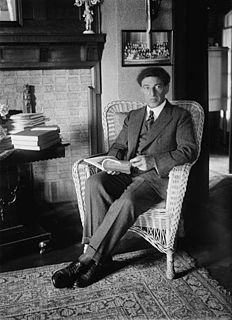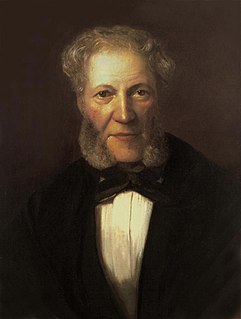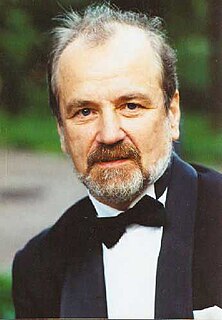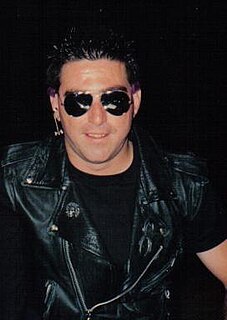
Ludwig van Beethoven was a German composer and pianist. Beethoven remains one of the most admired composers in the history of Western music; his works rank amongst the most performed of the classical music repertoire and span the transition from the Classical period to the Romantic era in classical music. His career has conventionally been divided into early, middle, and late periods. His early period, during which he forged his craft, is typically considered to have lasted until 1802. From 1802 to around 1812, his middle period showed an individual development from the styles of Joseph Haydn and Wolfgang Amadeus Mozart, and is sometimes characterized as heroic. During this time, he began to grow increasingly deaf. In his late period, from 1812 to 1827, he extended his innovations in musical form and expression.

Robert Schumann was a German composer, pianist, and influential music critic. He is widely regarded as one of the greatest composers of the Romantic era. Schumann left the study of law, intending to pursue a career as a virtuoso pianist. His teacher, Friedrich Wieck, a German pianist, had assured him that he could become the finest pianist in Europe, but a hand injury ended this dream. Schumann then focused his musical energies on composing.
Kathleen Wendy Herald Peyton, who writes primarily as K. M. Peyton, is a British author of fiction for children and young adults.

Alfred Brendel KBE is an Austrian classical pianist, poet, author, composer and lecturer who is known particularly for his performances of Mozart, Schubert, Schoenberg, and Beethoven.

Anton Grigoryevich Rubinstein was a Russian pianist, composer and conductor who became a pivotal figure in Russian culture when he founded the Saint Petersburg Conservatory. He was the elder brother of Nikolai Rubinstein, who founded the Moscow Conservatory.

Carl Czerny was an Austrian composer, teacher, and pianist of Czech origin whose music spanned the late Classical and early Romantic eras. His vast musical production amounted to over a thousand works and his books of studies for the piano are still widely used in piano teaching. He was one of Ludwig van Beethoven's best-known pupils.

Claudio Arrau León was a Chilean pianist known for his interpretations of a vast repertoire spanning the baroque to 20th-century composers, especially Bach, Beethoven, Schubert, Chopin, Schumann, Liszt and Brahms. He is widely considered one of the greatest pianists of the twentieth century.

The Suzuki method is a music curriculum and teaching philosophy dating from the mid-20th century, created by Japanese violinist and pedagogue Shinichi Suzuki (1898–1998). The method aims to create an environment for learning music which parallels the linguistic environment of acquiring a native language. Suzuki believed that this environment would also help to foster good moral character.

Josef Lhévinne was a Russian pianist and piano teacher. Lhévinne wrote a short book in 1924 that is considered a classic: Basic Principles in Pianoforte Playing. Asked how to say his name, he told The Literary Digest it was lay-VEEN.

Harvey Lavan "Van" Cliburn Jr. was an American pianist who, at the age of 23, achieved worldwide recognition when he won the inaugural International Tchaikovsky Competition in Moscow in 1958 . Cliburn's mother, a piano teacher and an accomplished pianist in her own right, discovered him playing at age three, mimicking one of her students and arranged for him to start taking lessons. Cliburn developed a rich, round tone and a singing-voice-like phrasing, having been taught from the start to sing each piece.

Isaac Ignaz Moscheles was a Bohemian piano virtuoso and composer. He was based initially in London and later at Leipzig, where he joined his friend and sometime pupil Felix Mendelssohn as professor of piano at the Conservatory.

Li Yundi is a Chinese concert pianist popularly known as Yundi and formerly Yundi Li. Li is most well known for being the youngest pianist, at the age of 18, to win the 2000 XIV International Chopin Piano Competition in Warsaw. He later served as the youngest juror in history for the competition in 2015.

Rudolf Serkin was a Bohemian-born Austrian-American pianist. He is widely regarded as one of the greatest Beethoven interpreters of the 20th century.

Lazar Naumovich Berman was a Soviet Russian classical pianist, Honoured Artist of the RSFSR (1988). He was hailed for a huge, thunderous technique that made him a thrilling interpreter of Liszt and Rachmaninoff and a late representative of the grand school of Russian Romantic pianism. Emil Gilels described him as a "phenomenon of the musical world".

Julián Carrillo Trujillo was a Mexican composer, conductor, violinist and music theorist, famous for developing a theory of microtonal music which he dubbed "The Thirteenth Sound".
Noel Mewton-Wood was an Australian-born concert pianist who achieved international fame on the basis of many distinguished concerto recordings during his short life.

Mykola Petrovich Suk is a Ukrainian American pianist and Merited Artist of Ukraine.

Emanuel "Manny"Ax is a Grammy-winning American classical pianist. He is a teacher in the Juilliard School.

Conrack is a 1974 American drama film based on the 1972 autobiographical book The Water Is Wide by Pat Conroy, directed by Martin Ritt and starring Jon Voight in the title role, alongside Paul Winfield, Madge Sinclair, Hume Cronyn and Antonio Fargas. The film was released by 20th Century Fox on March 15, 1974.

Richard Kastle is an American classical pianist and composer.


















